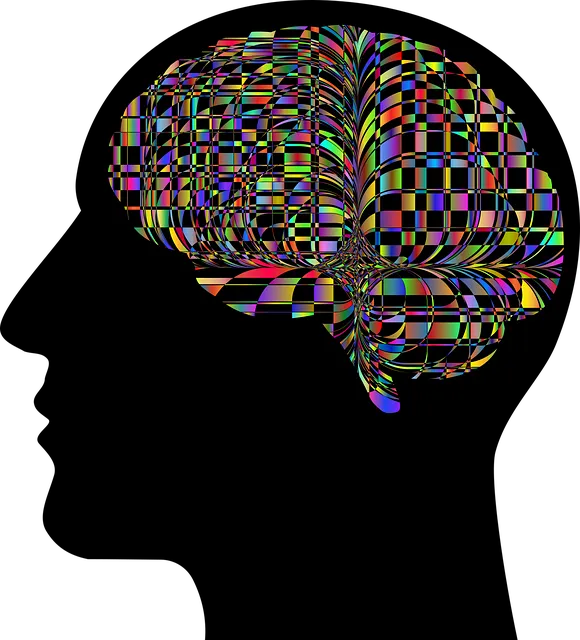Mental health professionals at Lafayette Kaiser Permanente face challenges in accurately diagnosing patients' conditions due to the complexity of mental illnesses, high misdiagnosis rates (up to 30%), and patients' difficulty communicating symptoms. To improve accuracy, they advocate for Risk Management Planning, Self-Awareness Exercises, robust self-care routines for practitioners and patients, advanced diagnostic tools like evidence-based therapy and data analytics, open communication during appointments, and holistic strategies such as Mental Wellness Coaching Programs and Compassion Cultivation Practices. These innovative approaches aim to reduce misdiagnosis, enhance patient well-being, and improve treatment outcomes, with the ultimate goal of revolutionizing mental health diagnosis through technology and comprehensive programs.
Mental illness diagnoses are crucial but often face challenges, with misdiagnosis rates alarmingly high. This article explores efforts to improve accuracy, focusing on Lafayette Kaiser Permanente’s innovative approach to enhancing diagnosis reliability. We delve into their strategies, from advanced assessment tools to comprehensive training programs, which have shown promising results. Additionally, we discuss the broader impact of accurate mental health diagnoses and look ahead to future advancements inspired by initiatives like Lafayette Kaiser Permanente’s pioneering work, emphasizing the importance of such efforts in managing mental health effectively.
- Understanding the Challenge: Misdiagnosis Rates in Mental Health
- Lafayette Kaiser Permanente's Approach to Enhancing Diagnosis Accuracy
- Innovative Strategies for Mental Illness Diagnosis Improvement
- The Impact and Future of Accurate Mental Health Diagnosis
Understanding the Challenge: Misdiagnosis Rates in Mental Health

Mental health professionals across the board face a significant challenge in accurately diagnosing patients’ conditions due to the complexity and often subtle nature of mental illnesses. Studies show that misdiagnosis rates remain alarmingly high, with some estimates suggesting up to 30% of initial diagnoses being incorrect. This problem is further exacerbated by the fact that many individuals struggle to communicate their symptoms effectively, especially in settings like Lafayette Kaiser Permanente mental health appointments, where time constraints might limit comprehensive assessment.
The consequences of misdiagnosis are profound, leading to inappropriate treatment plans and potentially causing harm to patients over the long term. To address this issue, professionals must prioritize Risk Management Planning, incorporating Self-Awareness Exercises to enhance their own capabilities in recognizing diverse mental health presentations. Additionally, fostering a robust Self-Care Routine Development for both practitioners and patients can significantly contribute to improving diagnosis accuracy by promoting overall well-being and facilitating more nuanced interactions during appointments.
Lafayette Kaiser Permanente's Approach to Enhancing Diagnosis Accuracy

Lafayette Kaiser Permanente has pioneered an innovative approach to enhancing mental health diagnosis accuracy, focusing on a holistic and patient-centric strategy. They emphasize that each individual’s journey with mental illness is unique, necessitating a tailored assessment process. To achieve this, their mental health professionals employ advanced diagnostic tools, incorporating not only traditional methods but also modern techniques like evidence-based therapy and data analytics.
By prioritizing open communication during mental health appointments, Lafayette Kaiser Permanente aims to create a safe space for patients to express their experiences candidly. This open dialogue, coupled with comprehensive assessments, enables healthcare providers to make more precise diagnoses. Additionally, they encourage the development of self-care routines as part of their holistic approach, emphasizing Mental Health Awareness and Anxiety Relief strategies that empower individuals to take control of their well-being.
Innovative Strategies for Mental Illness Diagnosis Improvement

In the pursuit of enhancing mental illness diagnosis accuracy, healthcare providers at Lafayette Kaiser Permanente have embraced innovative strategies. One notable approach is the integration of Mental Wellness Coaching Programs, which go beyond traditional therapy by combining cognitive-behavioral techniques with personal development activities. These programs empower individuals to cultivate resilience and self-compassion, thereby improving their ability to recognize and express emotional needs accurately.
Additionally, Compassion Cultivation Practices have been incorporated into routine mental health appointments, marked by the Lafayette Kaiser Permanente mental health appointment number. This involves encouraging patients and healthcare providers alike to develop empathy and understanding towards others’ experiences. Such practices not only foster deeper connections during sessions but also enhance diagnostic accuracy by promoting a more nuanced understanding of mental health conditions. Furthermore, Burnout Prevention Strategies for Healthcare Providers are being implemented to ensure professionals maintain optimal well-being, enabling them to offer consistent and compassionate care throughout their interactions with patients.
The Impact and Future of Accurate Mental Health Diagnosis

The accuracy of mental health diagnoses is paramount as it dictates the effectiveness of treatment and recovery outcomes. Inaccurate or delayed diagnosis can lead to exacerbation of symptoms, increased patient distress, and a higher risk of suicide. Therefore, improving diagnostic accuracy is not just an effort towards better patient care but also a life-saving initiative. Organizations like Lafayette Kaiser Permanente are at the forefront of these efforts, recognizing that early and precise identification of mental health conditions is crucial for successful intervention.
Looking ahead, technological advancements hold promise in enhancing diagnosis accuracy. Digital tools can facilitate more comprehensive patient assessments, reduce bias, and provide standardized criteria for various mental health disorders. This could be particularly beneficial in areas where access to specialized mental health professionals is limited. Moreover, integrating Social Skills Training, Depression Prevention, and Burnout Prevention programs into the diagnostic process can offer a holistic approach, addressing not just symptoms but also improving patients’ overall well-being and functioning in society.
Mental illness diagnosis accuracy is a multifaceted challenge, with misdiagnosis rates highlighting the need for innovative solutions. Organizations like Lafayette Kaiser Permanente are leading the way with targeted approaches that prioritize patient-centered care and evidence-based practices. By integrating advanced diagnostic tools, enhancing clinical training, and fostering collaborative environments, they strive to improve outcomes. The impact of these efforts is profound, potentially reducing treatment delays and enhancing patient satisfaction. As the field continues to evolve, leveraging data analytics and promoting accessible mental health services will be crucial in ensuring accurate diagnoses for all, ultimately improving overall well-being.





